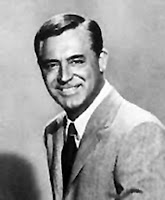The second of my three part blog series about movies takes a look at some of Hollywood's starring role casting decisions over the years.
As we all know, casting for the lead role in a movie can be a lengthy process with many qualified candidates to sift through before making that final decision. Sometimes there's a big difference of opinion between various factions of the decision making process. And also obvious, the choice of actor/actress in a role can sometimes end up making the difference between a box office success and a mediocre film even though the original choice was very famous and popular.
Through the decades there have been many starring roles that were almost cast with a different lead, possibly changing the audience response to the character and the movie. In retrospect, trying to visualize someone else in the role sometimes leaves us scratching our heads and wondering what in the world they were thinking of with their first choice. And, of course, in the days when the major studios ruled the industry, there wasn't much objection to what the studio head wanted.
Here's a sample list of films and the stars that almost didn't get the role—some of these second choices earning an Oscar for their performances.
Pirates Of The Caribbean: the role of Capt. Jack Sparrow in that first movie was originally intended for Jim Carrey. When a scheduling conflict forced him to bow out, the role went to Johnny Depp who put his own indelible stamp on the character in a series of Pirates Of The Caribbean films.
Drive: Hugh Jackman was originally signed for the role that ended up being Ryan Gosling's.
Lord Of The Rings: When Sean Connery turned down the role of Gandalf in the movie, it went to Sir Ian McKellen.
American Psycho: It was originally Leonardo DiCaprio. He was eventually replaced by Christian Bale.
Men In Black: Chris O'Donnell was originally cast. However, due to the director's insistence, Will Smith replaced him.
Basic Instinct: Kelly McGillis was considered before the role went to Sharon Stone.
Dirty Dancing: Val Kilmer was considered but the role eventually went to Patrick Swayze.
The Shining: The iconic Jack Nicholson role ("Here's Johnny!") almost went to Robin Williams.
Pretty Woman: Molly Ringwald turned down the role that was a career maker for Julia Roberts.
Silence Of The Lambs: Michelle Pfeiffer almost had the role that won Jodie Foster one of her Oscars.
Indiana Jones: George Lucas was pushing for Tom Selleck but Steven Spielberg held out for Harrison Ford.
The Matrix: Ewan McGregor was cast first. He turned down the role so he could accept the role in Star Wars Episode 1.
Gladiator: Mel Gibson turned down the role that won an Oscar for Russell Crowe.
Titanic: Matthew McConaughey was first choice, but the role ultimately went to Leonardo DiCaprio.
Forrest Gump: John Travolta turned down the role that earned Tom Hanks one of his Oscars.
Chicago: John Travolta also turned down the role of Billy Flynn with the role going to Richard Gere.
Iron Man: Tom Cruise turned down the role due to script issues. It was then offered to Robert Downey, Jr., along with Iron Man 2 and Iron Man 3.
And now let's go back several decades (about 80 years ago—yikes, that's almost a century) to some classic movies from the 1940ish time frame, a time when most stars were under contract to a specific studio rather than being independent contractors and, as such, for the most part had no say so in the roles they would play.
The Wizard Of Oz: MGM wanted to borrow Shirley Temple from 20th Century Fox to play the role of Dorothy. When that negotiation didn't work out, the role went to Judy Garland.
Robin Hood: Jack L. Warner (head of Warner Bros. Studio) wanted James Cagney (a big Warner Bros. star) cast in the title role that went to Errol Flynn who seemed born to play the part. Even though Cagney was certainly an excellent actor, I simply cannot visualize him as Robin Hood.
Gone With The Wind: Literally, every leading actress in Hollywood was tested for the coveted role of Scarlet O'Hara, and all were rejected. The movie had already started filming before a British actress named Vivien Leigh (married to Laurence Olivier at the time) was finally cast as Scarlet.
The Maltese Falcon: George Raft turned down the role of Sam Spade because he felt it was 'not an important film.' To the delight of director John Huston, the role went to Humphrey Bogart who was Huston's first choice.
Casablanca: Ronald Reagan was first considered for the Humphrey Bogart role in one of the all time classic films. It ended up being a great film for Bogart and another win situation for movie-goers.



































